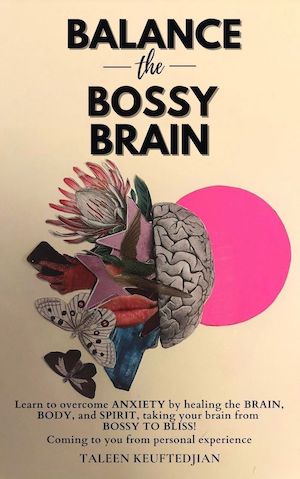A dopamine deficiency can be associated with many mental health disorders, poor memory, loss of motor control, poor digestion, sleep disturbances, and more. Dopamine affects so many different aspects of the human body, so it’s important to determine if you can could be suffering from low levels and how to increase dopamine.
What is Dopamine
Dopamine is a neurotransmitter in the brain that sends messages to nerve cells. It plays an important role in the brain’s motivation reward system. It’s associated with pleasurable sensations related to learning, memory, motor control, and more. 50% of dopamine is produced in the brain, while the other 50% is produced in the gut. Any digestive issues can interfere with the production and transportation of this important chemical.

Dopamine Function in The Brain
Dopamine is responsible for both emotional and physical well-being. For this reason, there’s an extensive list of symptoms associated with a dopamine deficiency. Optimal levels can contribute to healthy mood, sleep, memory, learning, concentration, and motor control. It’s also responsible for the pleasure and anticipation of receiving rewards which can contribute to both positive and negative behavior. However, dopamine is released at a more moderate rate when associated with positive behavior, while negative behaviors trigger too much release all at once. This is usually why it’s easier to become addicted to the things that are bad for us, like sugar, carbohydrates, drugs, and alcohol.

There is testing available that could determine a deficiency, however the results are unreliable and are not commonly offered. You may be better off examining whether you have a history of addiction, poor diet, obesity, impaired mood, and digestive problems, which could all be an indication of a deficiency.
Causes of Dopamine Deficiency
- Drug and alcohol abuse interfere with the amount of dopamine needed for the brain to function properly. Drugs and alcohol trigger the release of dopamine which is what gives you that high feeling. Once your brain stops releasing dopamine, you start to crash. Continuous use of drugs and alcohol depletes your reserves, which makes it harder to achieve the positive effects of this happy chemical. Overwhelmed receptors also begin to shut down, making it harder for your brain to absorb dopamine.
- Obesity and overeating can be just as damaging as drug and alcohol abuse. Your body releases dopamine every time you eat, which is constantly depleting your reserves when done in excess. The brain’s award system also begins to associate overeating as a reward, making the obese person want to eat more to keep achieving this satisfaction. In addition to depleted reserves, the receptors also become damaged. This could be due to the brain trying to overcompensate for a continuous overflow of dopamine, resulting in overwhelmed receptors.
- Diets high in sugar and saturated fats continuously trigger large amounts of release all at once. This produces the desire to consume more and more. The more you eat, the more dopamine is released, which is exhausting your reserves and receptors, making them lazy or inactive. Being that dopamine is connected to your brain’s reward system, you don’t want to trick your brain into thinking that eating sugars and saturated fats are a reward.
- Diets that lack protein can lead to a lack of l-tyrosine, which is an amino acid essential in building dopamine.
- Poor diet resulting in a lack of B vitamins, zinc, iron, copper, and magnesium. You should focus on increasing these nutrients because they are known to help increase dopamine levels.
- Digestive issues can lead to a deficiency because 50% of dopamine is produced in the gut. If your digestive system is not functioning properly, then you may not be producing enough of this happy chemical or the neural pathways to the brain may be blocked as a result of inflammation.
- Chronic stress leads to a consistent overflow of stress hormones like cortisol and adrenaline, while suppressing calming hormones like serotonin and dopamine.
Low Dopamine Side Effects
- Depression
- Bad memory, especially short term memory, such as forgetting the first part of your sentence
- Body tremors, such as hand or leg shaking
- Difficulty eating or swallowing due to a lack of contraction in the esophagus
- Muscle spasms, muscle stiffness, cramps, and tremors
- Constipation
- Loss of balance when standing or walking
- Uncontrollable eye movements
- Difficulty sleeping
- Gastroesophageal reflux disease (GERD)
- Frequent pneumonia occurrences
- Difficulty speaking, articulating words, or speaking slower than usual
- Hallucinations, delusions, or a general lack of awareness
- Anxiousness
- Low energy and fatigue
- An inability to focus
- Mood swings, lack of motivation, hopelessness, sadness, and low self esteem
How to Increase Dopamine
- Nutrition – Try to limit sugars and saturated fats as much as possible. You can start by limiting your consumption of processed food and sugar. At the same time, you should increase your intake of vegetables, healthy grains, legumes, nuts, seeds, and unprocessed meats, such as chicken and fish. The goal here is to increase B vitamins, copper, iron, zinc, and magnesium in your body. These vitamins and minerals help facilitate the production of dopamine and a lack of them can contribute to a deficiency.
- Tyrosine converts to dopamine in the body, and you can find this important amino acid in beef, pork, salmon, chicken, tofu, and beans.
- Probiotics are a great way to improve gut health. They can ensure that you produce enough dopamine, and that the neural pathways are not blocked by inflammation. *Remember that 50% of dopamine is produced in the gut, so any digestive issues can impair the production and transportation of this happy chemical.
- Exercise increases new brain cells and prevents neurodegenerative disease. It also stimulates the production of the happy chemicals.
- Sleep is extremely important because it allows your body to detox, heal, and regenerate itself, which will keep the neural pathways to the brain functioning properly. These pathways need to be clear in order for the happy chemicals to make its way to the brain’s receptors.
- Yoga, meditation, massage, and listening to music can all help you relax and destress. Stress inhibits dopamine production, so it’s important to reduce your stress levels as much as possible.
- Supplements such as L-tyrosine can be taken to increase your levels. It’s a natural amino acid found in protein rich foods. L-tyrosine should be taken in the morning on an empty stomach for optimal effectiveness. *L-tyrosine should not be taken long term and should only be taken as needed. Make sure that taking l-tyrosine will not interfere with any medications that you are currently taking, especially those who have an overactive thyroid, graves’ disease, or pregnant women.
- Setting achievable goals will boost your levels while keeping you motivated to succeed. This can be as simple as making a list of the things you need to do for the week. You’ll find pleasure in crossing off each item as you complete them. This is a healthy reward that you want your brain to associate with pleasure.
Can You Have Too Much Dopamine
Having high amounts of this chemical stored in your brain is not harmful. it’s when your brain constantly experiences an excessive release related to negative activities that it becomes damaging. Dopamine is responsible for creating addictions related to food, sugar, drugs, alcohol, cigarettes, sex, gambling, and more. A Dopamine detox can help you overcome this addictive behavior to lead a healthier life.
Author Bio

Taleen Keuftedjian is a mental health and wellness enthusiast who coaches others on the importance of whole-body health, which incorporates brain, body, and spirit. She takes a relatable approach where she uses her own personal experiences to help motivate others to live a healthy, happy, anxiety-free life.
Check out my book!
A relatable guide to overcoming anxiety by finding the root cause, and bringing the brain, body, and spirit back into balance. Coming to you from personal experience!


~ Balance the Bossy Brain

Learn more about Habitat for Wellness


